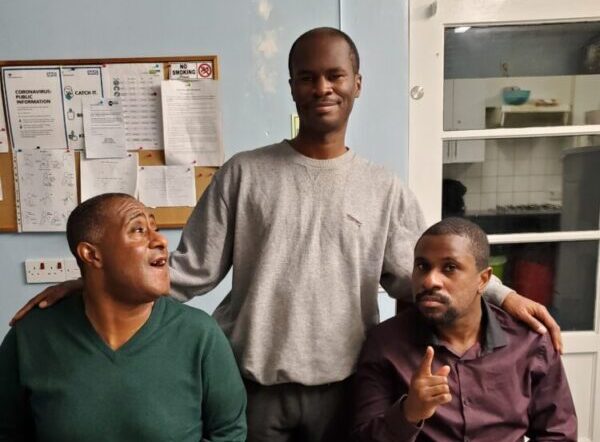
Cygnet’s new Expert by Experience Carer Ambassador has spoken about the impact he hopes to make to the organisation to ensure carers voices are heard and that they continue to play an integral role in shaping the support provided to their loved one.
As part of Cygnet’s ongoing commitment to carers and to demonstrate how it values the vital role that carers, families and friends provide, the leading health and social care company has introduced two Expert by Experience Carer Ambassador roles.
These roles – fulfilled by people with lived experience as a carer – will help shape Cygnet’s carer plan and they will take part in a range of opportunities for discussion and feedback across carers’ councils, workshops and one-to-one conversations in all service areas.
This week is Carers Week, with charities, organisations and individuals getting together to show support for the millions of unpaid carers in the UK – and to spread the word about the challenges they face throughout the year. To mark the week, Cygnet has also this week launched its’ two-year Carer, Family & Friend Strategy which sets out how it will engage and support families and carers across its Cygnet Health Care and Cygnet Social Care services to provide outstanding, safe, high-quality services for every individual and their loved ones.
Its’ new Expert by Experience Carer Ambassador, Matthew McKenzie, is a carer and author who runs several forums and support groups for carers looking after someone with mental health issue. He previously cared for his mother, and now supports his two brothers with autism.
“I usually get up very early when I visit my brothers,” he explained. “I want to spend as much of the day as I can with them. So I often walk down the road to pick up my brother and take him to spend time with my other brother.
“My caring tasks are making sure both my brothers are suited to the weather, especially when I take them to the park. I am given my brother’s inhaler in case his asthma flares up. My other brother is ok, but sometimes he can have trouble with his physical mobility.
“The main thing is that we are outside, and it’s good to see the smiles on their faces.
“When it comes to demands on me, these are usually about finding time to see them as I want to be part of their lives as much as I can. It’s not just about visiting my brothers – it’s about being involved in their care plans, care reviews and future planning. My brothers are non-verbal, so I act as their voice and speak up for them.
“In my caring role I’m not under as much pressure as other unpaid carers who get next to no support. The only pressure is that I am the main person in my family who continues to be involved in their lives.”
Matthew now runs several carer forums that cover large parts of London. He is also the chair of the National Triangle of Care community group and campaigns heavily for carer rights with the support of national carer charities.
Matthew often uses social media to raise awareness of mental health and carers and is also an NHS Citizen to continue promoting awareness of carers including cancer carers and ethnic minority carers. He has
written four books to continue raising awareness of mental health carers.
He says: “I always felt that carers should get involved to create change within organisations. I am involved in several mental health NHS trusts, but felt I could make a difference at Cygnet.
“As a carer ambassador I can use my profile to connect with carers who often feel lost within the system. Even though I heavily promote carer causes, I believe staff, patient and carers should work together to increase communication and understanding. There will be challenges, but I also believe we should avoid shutting people out.
“Cygnet has done a lot to raise the profile of carers and I am excited to see what will develop from their latest carer initiatives. I am sure Cygnet is up to the challenge to identify and support carers.”
Cygnet’s vision is to ensure carers, families and friends have a sense of belonging to ensure their diversity of background and life experience bring different insights, create challenge and encourage change and innovation.
The six priorities the strategy will help to meet include introducing measures to help identify and recognise carers, ensuring staff are ‘carer aware’ and trained in carer engagement, supporting family and carers by providing or sign-posting support services available and improving the involvement of families and carers across the organisation.
